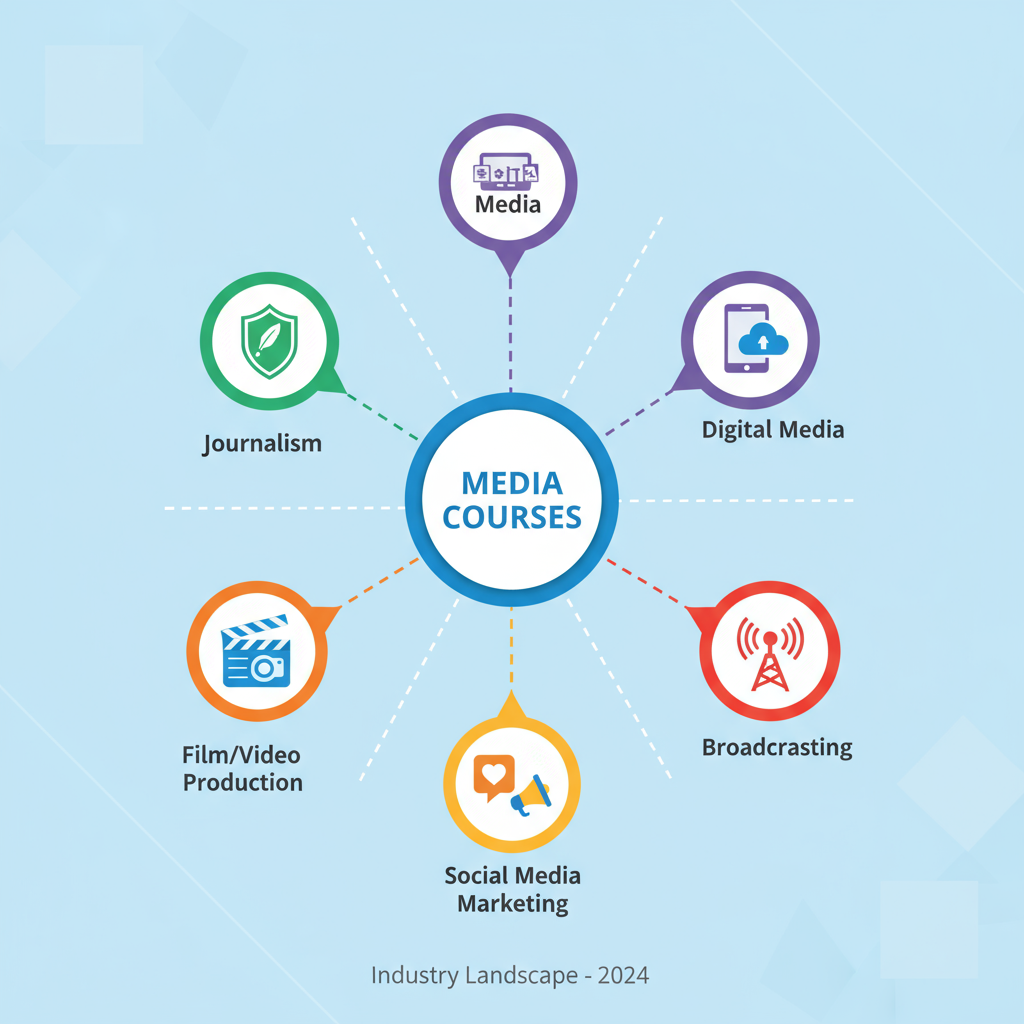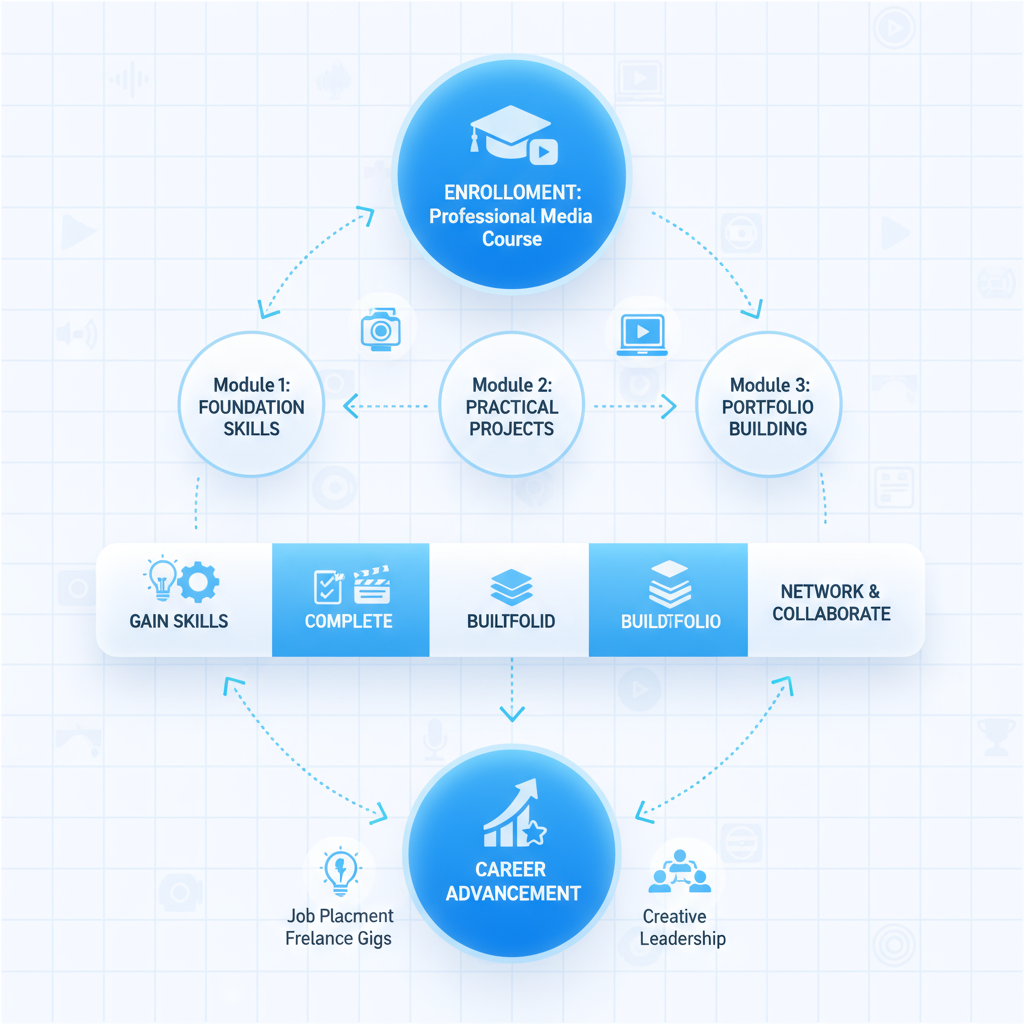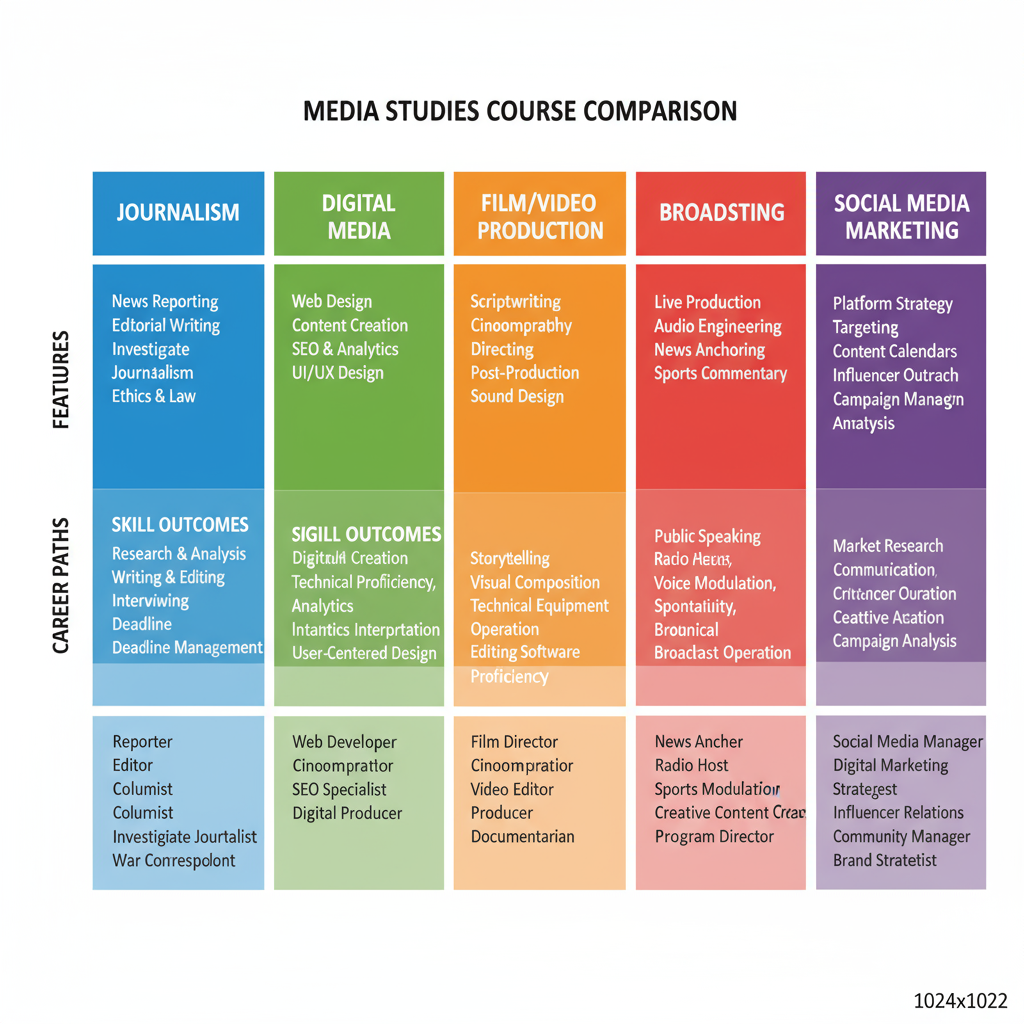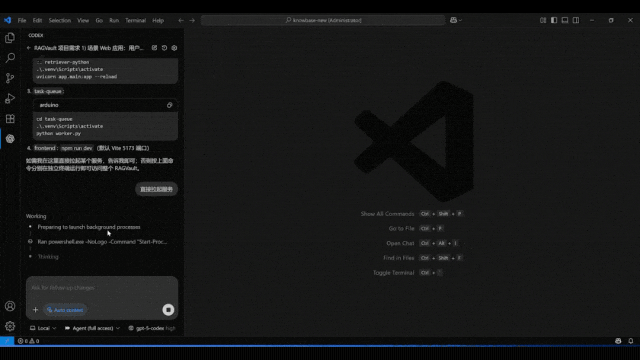Top Media Courses to Advance Your Career in 2024
Discover the best media courses in 2024 to boost your skills in journalism, digital media, filmmaking, and marketing for greater career growth.

Introduction to Media Courses and Industry Demand
The media industry has experienced a profound transformation over the last decade, driven by the rapid rise of digital technologies, social platforms, and innovative storytelling formats. From classic print journalism to immersive virtual reality content, the scope for creative professionals has never been broader. Organizations now compete for attention in an increasingly crowded digital space, fueling an unprecedented demand for skilled communicators.

Pursuing structured media courses in 2024 is one of the most effective ways to gain in‑demand skills, understand market trends, and position yourself ahead of the competition. Whether you aspire to be a journalist, social media strategist, filmmaker, or content marketer, tailored courses can pave the way for career growth.
---
Benefits of Taking Professional Media Courses
Formal training in media provides advantages that go beyond basic technical knowledge. Key benefits include:
- Skill Specialization – Master tools and techniques such as video editing, audio production, multimedia reporting, and digital analytics.
- Career Advancement – Enhance your credentials to secure promotions or pivot to new career paths.
- Industry Adaptability – Stay competitive in a media landscape shaped by constant technological change.
- Professional Networking – Build valuable relationships with instructors, industry peers, and potential employers.
Investing in well‑structured training aligns your abilities with the competencies today’s top media organizations require.
---
Types of Media Courses
The media field is diverse, and courses are often designed for specific niches and roles. Some prominent categories include:
Journalism
Develops skills in news writing, investigative reporting, and maintaining ethical standards.
Digital Media
Focuses on creating and managing content for online platforms, multimedia storytelling, and engaging digital audiences.
Film and Video Production
Provides training in directing, cinematography, editing, visual effects, and post‑production workflows.
Broadcasting
Covers live TV, radio, and podcast productions, along with on‑air presentation and technical studio operations.
Social Media Marketing
Teaches how to create, execute, and analyze campaigns across platforms like Instagram, TikTok, LinkedIn, and YouTube.

---
Top Online Media Courses and Platforms
The rise of e‑learning platforms has made professional training more accessible than ever. Leading platforms offering popular media courses include:
| Platform | Popular Course | Key Features |
|---|---|---|
| Coursera | Digital Media and Marketing Specialization (University of Illinois) | University-accredited, flexible schedule, capstone projects |
| Udemy | Complete Video Production Bootcamp | Lifetime access, practical assignments, beginner-friendly |
| LinkedIn Learning | Social Media Marketing Foundations | Short video lessons, downloadable resources, expert instructors |
| MasterClass | Filmmaking with Martin Scorsese | Celebrity-led, cinematic course production, insider storytelling tips |
Choosing the right platform can depend on your learning style, time availability, and desired certification.
---
Best University and College Media Programs Globally
If you prefer an academic route, consider these respected institutions offering world‑class media education:
- University of Southern California (USC) – School of Cinematic Arts (USA)
- Renowned for excellence in film, television, and interactive media programs.
- University of Amsterdam – Media Studies Department (Netherlands)
- Specializes in media theory, research methodologies, and cross‑cultural communication.
- Goldsmiths, University of London – Media and Communications (UK)
- Known for combining creative practical training with critical theory.
- New York University (NYU) – Tisch School of the Arts (USA)
- Offers cutting‑edge film, interactive media, and performance programs.
- Hong Kong Baptist University – School of Communication (Hong Kong)
- Strong journalism and international communication focus.
---
Practical Skills Gained from Media Training
Quality media courses blend theoretical understanding with practical application, equipping learners to:
- Tell Stories Effectively – Craft engaging narratives tailored for different audiences and channels.
- Edit Professionally – Use industry tools like Adobe Premiere Pro, Final Cut Pro, or DaVinci Resolve.
- Manage Productions – Coordinate resources, schedules, and budgets from concept to completion.
- Develop Content Strategy – Plan, distribute, and measure content across diverse platforms.
- Operate Media Equipment – Handle cameras, lighting, and sound setups with precision.
These competencies translate directly into employability across diverse media sectors.
---
Choosing the Right Course Based on Career Path
Your specific goals should guide your course choices. For example:
- Aspiring investigative journalist → Journalism‑centered training.
- Future brand strategist → Digital media and social marketing programs.
- Prospective filmmaker → Film production and screenwriting instruction.
Pro Tip: Assess course syllabi, instructor expertise, and alumni outcomes before committing.

---
Cost, Duration, and Certification Considerations
Media courses vary in price, length, and type of credential awarded:
| Course Type | Estimated Cost | Duration | Certification |
|---|---|---|---|
| Short Online Workshop | $50–$200 | 1–4 weeks | Digital certificate of completion |
| Professional Diploma | $500–$2,000 | 3–12 months | Industry-recognized diploma |
| University Degree | $10,000–$50,000/year | 3–4 years | Accredited academic degree |
Remember to factor in potential extra costs such as equipment, software subscriptions, and travel.
---
Tips for Succeeding in a Media Course
Maximize your time and investment with these strategies:
- Create a Portfolio – Showcase work from assignments and projects.
- Join Communities – Network via forums, webinars, and professional social groups.
- Seek Constructive Feedback – Use critiques to refine your work.
- Practice Continuously – Apply newly learned concepts to personal or freelance projects.
---
Future Trends in Media Education
Emerging trends are shaping the future of media training:
- AI‑Powered Content Tools – Automating writing, editing, and analytics with machine learning.
- Immersive Storytelling – VR and AR becoming integral to audience engagement.
- Cross‑Platform Narratives – Developing stories adaptable to TV, social media, and interactive formats.
- Data‑Driven Decision‑Making – Using audience metrics to fine‑tune strategies.
Keeping pace with these innovations ensures you remain competitive in 2024 and beyond.
---
Conclusion and Call to Action
The media sector in 2024 offers wide‑ranging opportunities for talented, adaptable professionals. Enrolling in targeted media courses will help you develop specialized skills, gain industry‑recognized credentials, and build a professional network.
Whether your path leads to a concise online workshop or a prestigious university degree, the important step is to begin your journey now. The narratives and content shaping tomorrow’s audiences start with the skills you develop today.
Start exploring trusted media courses now and take a decisive step toward your future career in media.



